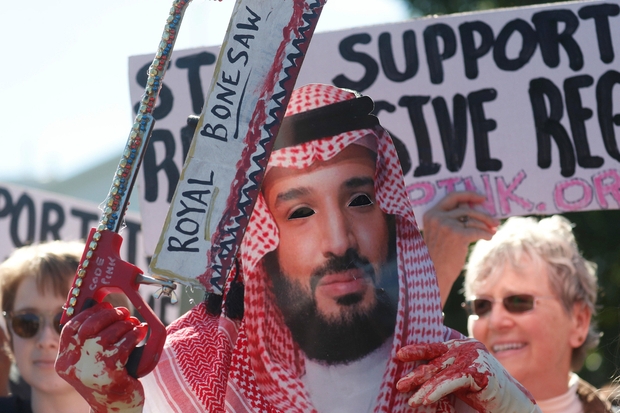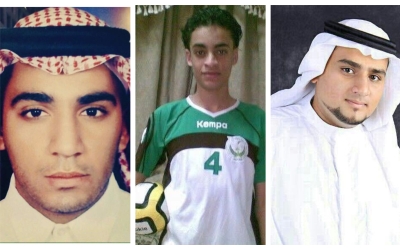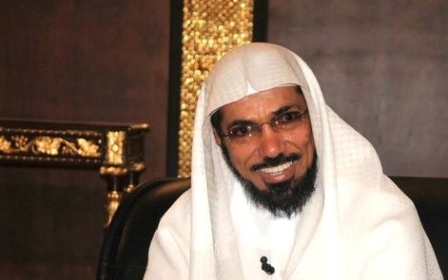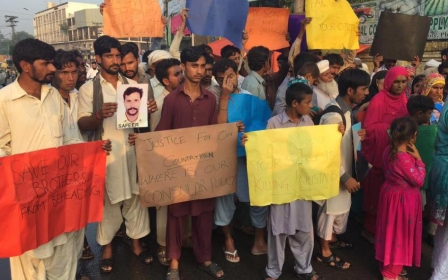Executed by Saudi Arabia: An activist, a naval officer and two Egyptians

According to figures released by UK-based rights group Reprieve this week, Saudi Arabia executed more people last year than any of the previous six since the organisation started keeping records.
Among the 184 people executed, at least 90 were foreign nationals, and also 37 - mostly from the kingdom's Shia minority - were killed in a single day in April, including three children, according to the rights group.
According to a statement from Saudi Arabia's Interior Ministry, 81 people that were executed in 2019 had been convicted of non-violent drug crimes.
MEE has already profiled some of the people who were executed in 2019, and here are a few more:
Abdullah Salman al-Sareeh
New MEE newsletter: Jerusalem Dispatch
Sign up to get the latest insights and analysis on Israel-Palestine, alongside Turkey Unpacked and other MEE newsletters
Abdullah Salman al-Sareeh was an activist who called for social justice in demonstrations held in Saudi Arabia in 2011, part of the wave of uprisings that erupted in several Arab countries at the time.
Born in 1994, Sareeh was arrested in 2013 when he was 19, charged for his participation in protests two years before and also for allegedly firing upon government forces.
He was among several young men held in solitary confinement for several months and subject to brutal torture to obtain confessions that formed the basis of their convictions, according to a report by Helena Kennedy, QC, leading human rights lawyer, released last year.
Sareeh lived in a shantytown in the oil-rich kingdom with his mother and two brothers. He had shown them in an interview before his death:
“This house does not protect us from cold or hot weather,” Sareeh said.
“Is this how a Saudi citizen lives? We protested peacefully to reform these conditions, so how they accuse us of terrorism?”
His mother told local media that the Saudi government paid the family $375 to help after her husband died. Following his arrest, she said she was shocked to see her son's face on TV, accused of carrying weapons.
Salim Abdullah Awad al-Omari al-Harbi
Harbi was one of the 37 people executed on that one day in April. A Saudi Royal Navy officer, he was accused of being the leader of a cell that was spying on behalf of Iran and charged with high treason.
Officials said Harbi gave information to Iran about the locations of Saudi forces in Dhahran, a city in the Eastern Province, close to the kingdom's borders with Bahrain and Qatar, according to local media.
The information he was accused of sharing reportedly included details about the King Abdulaziz Air Base, including the number of fighter jets and their types, and photos he took from inside various area bases while serving as an officer.
Harbi was also accused of attempting to murder Saudi royals and political figures and receiving money from Iran.
Eight other people were also executed in relation to this case in April, along with Harbi.
Massad Awad al-Labban & Mahmoud Abdulaziz Mahmoud
Labban and Mahmoud were both Egyptian citizens, executed in September in the kingdom's northeastern Tabuk province.
The two men were arrested while attempting to smuggle banned amphetamine and opium drugs, according to Saudi media reports.
The decision by Tabuk’s court was approved by King Salman, who issued a royal decree to carry out the executions.
In the same month, a Syrian national - Abd Hasan Jasim al-Omian - was also executed in the eastern province of al-Ahsa.
Omian was charged with killing his father with a hammer and strangling him to death, according to local media. Omian tried to disguise his crime by pouring gas and setting fire to his father’s body.
A third execution in September fell on Ayed Bin Mohammed al-Otaibi, who was charged with murder.
Middle East Eye delivers independent and unrivalled coverage and analysis of the Middle East, North Africa and beyond. To learn more about republishing this content and the associated fees, please fill out this form. More about MEE can be found here.





